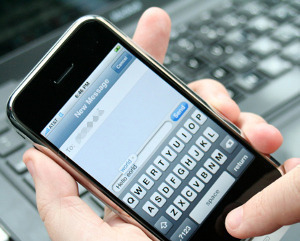How to Recover Deleted Text Messages from an iPhone
The iPhone, which Apple created, is a media device that combines the functionality of a phone, computer, camera, and media player. It features touchscreen technology that allows users to browse the Internet, select files, and run applications by simply touching the screen. The iPhone also supports Bluetooth technology and wireless Internet in order to allow the user to access the Internet and file sharing services from anywhere within the user’s network service range. However, the iPhone’s most important feature is its ability to store and access files in the same way a computer does. Because of this, users have a larger variety of options for recovering deleted files.
What Happens to Deleted Text Messages?
On a regular cell phone, text messages and other files that have been deleted are immediately removed from the phone’s smartchip or built-in storage device in order to make room for more files. Because the iPhone stores and accesses files like a computer, however, it is able to store deleted files for much longer periods of time until the memory must be used for something else. When someone deletes text messages on an iPhone, they are removed from the user interface but are still in a database file called “sms.db.” In fact, this file contains every text message that has ever been sent or received on the phone, even if they have been deleted.
How to Recover Deleted Text Messages
Rather than jailbreaking an iPhone like many tutorials suggest, users can recover their deleted text messages by connecting their iPhone to a computer that is running the Windows Operating System and synchronizing it with the computer via Apple iTunes. The user must then download and install a program called TextPad that will allow him/her to access the iPhone’s core files. The user should now select “Search” and click the “Find in Files…” option. The user can now enter “newest_message” in the “Find What” input field and mark the checkbox that says “Search subfolders.” The user should now click “Find” and see one or more search results. These results will all point to the same database file, so the user can click on either one of them. The database file will contain strands of random information in addition to the user’s text messages. While this method allows the user to see deleted text messages, it does not allow the user to return the messages to the user interface.



Comments - 2 Responses to “How to Recover Deleted Text Messages from an iPhone”
Sorry but comments are closed at this time.